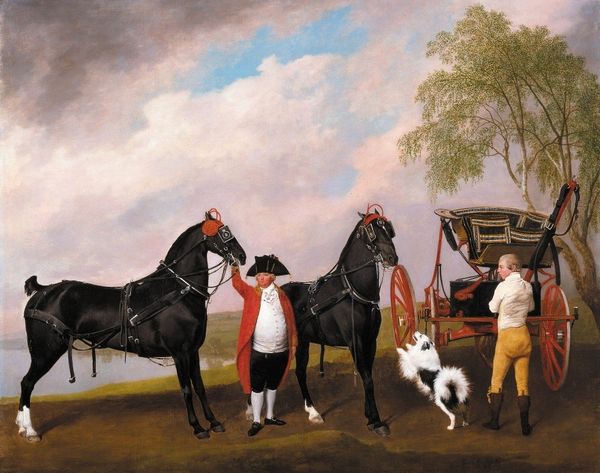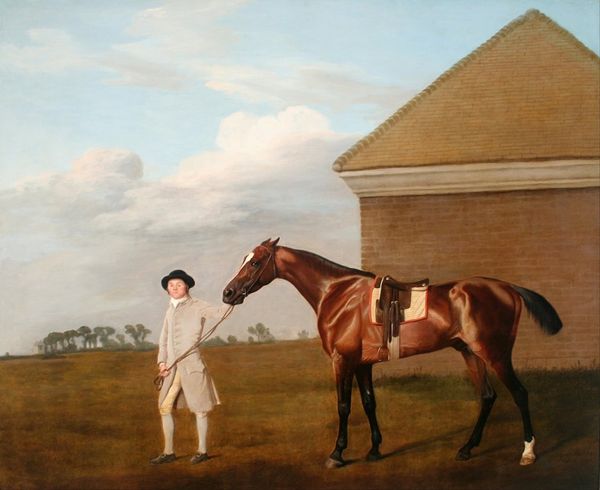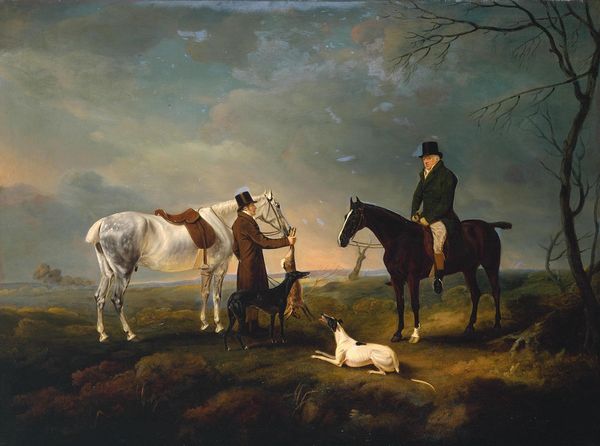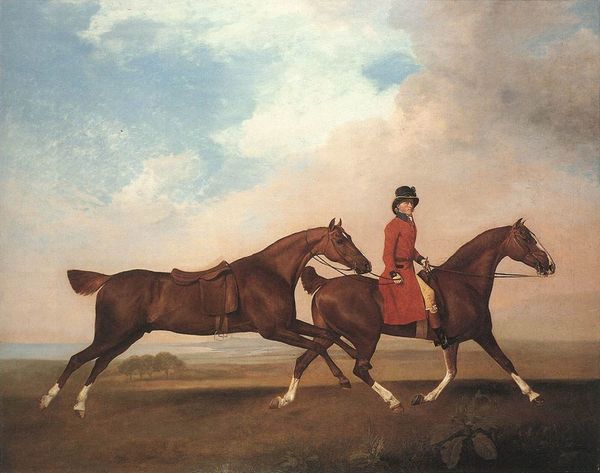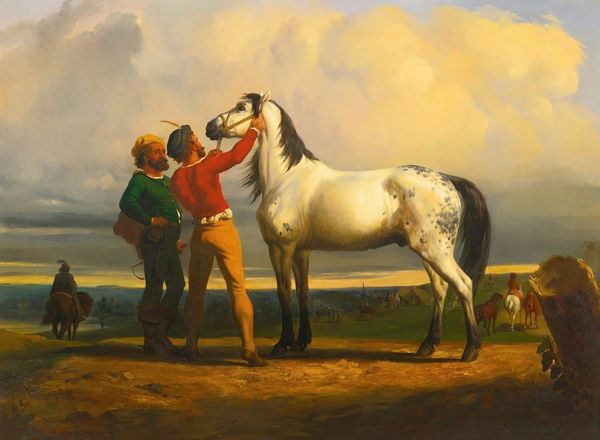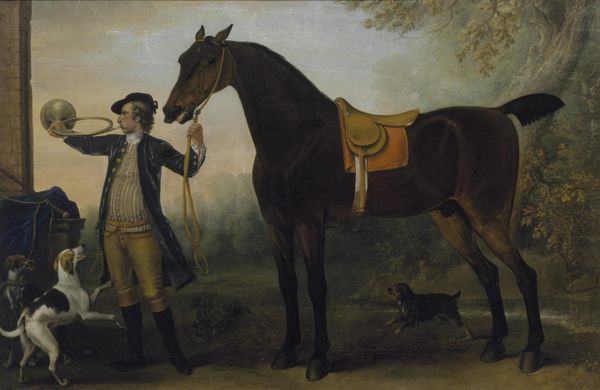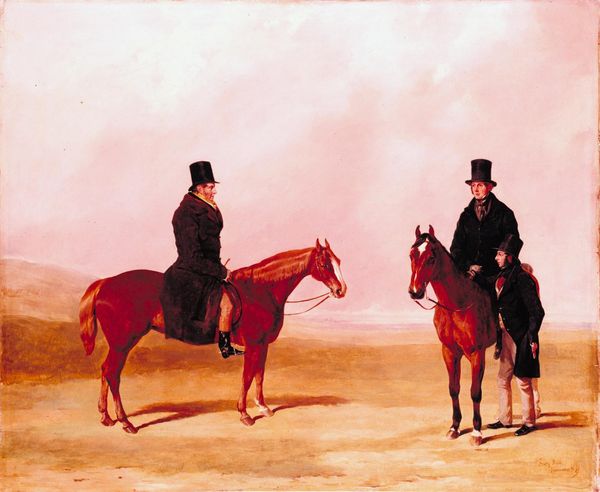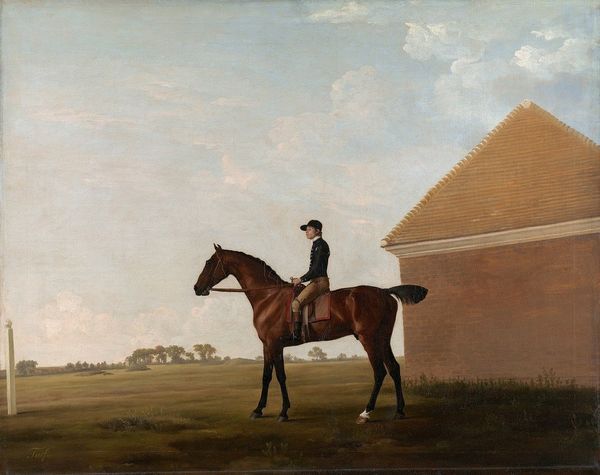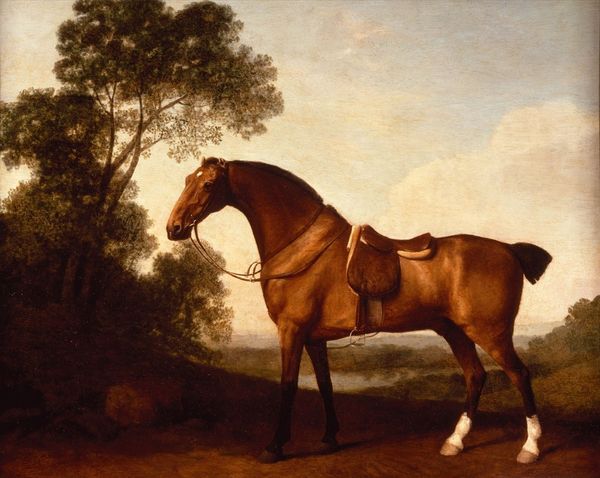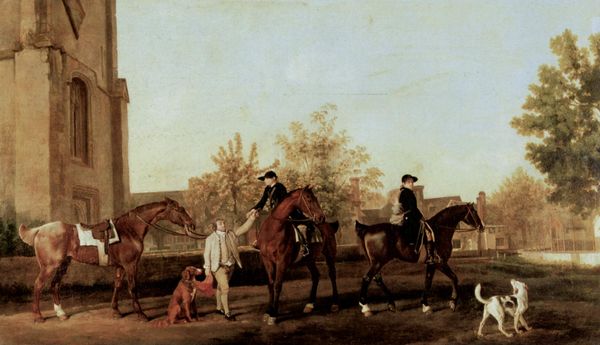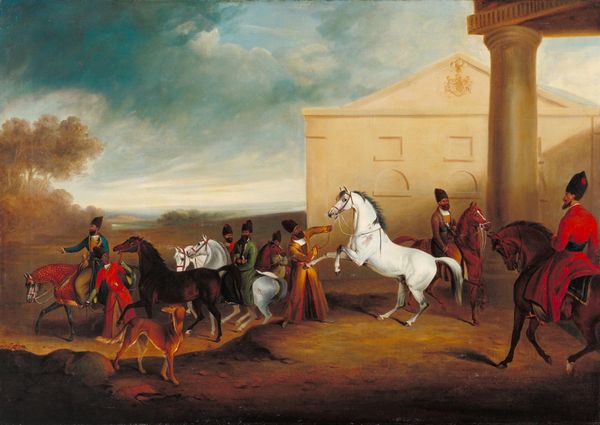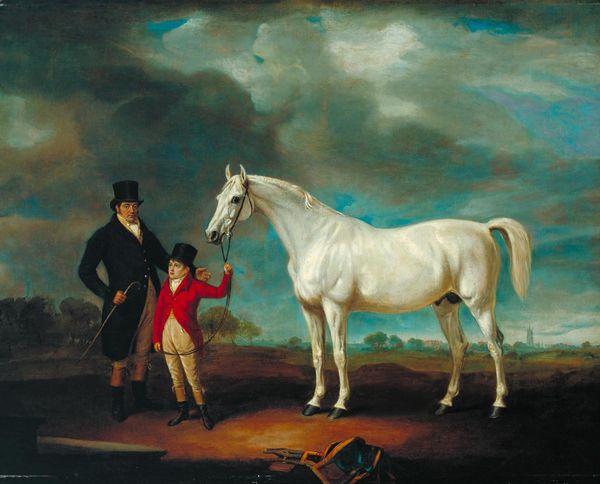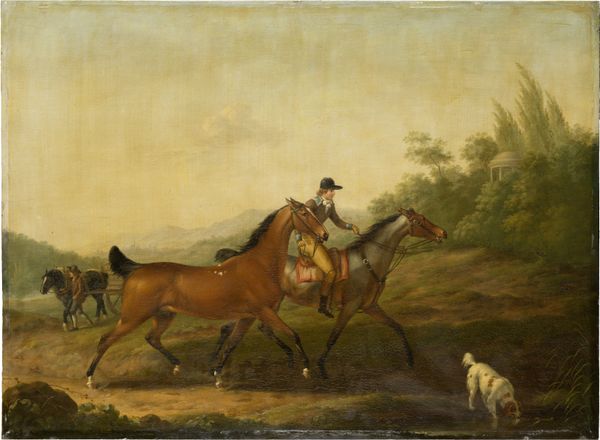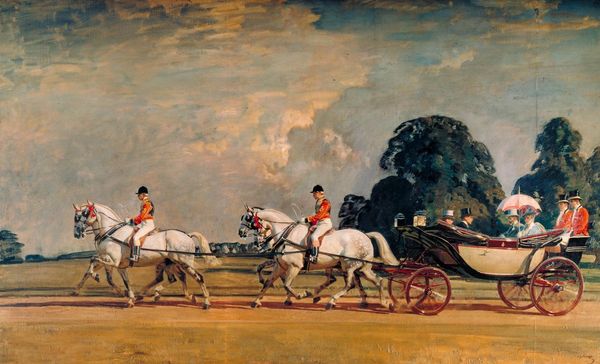
Dimensions: support: 968 x 1273 mm
Copyright: CC-BY-NC-ND 4.0 DEED, Photo: Tate
Editor: Abraham Cooper’s "The Day Family" depicts a group of people with their horses. It's quite large! What strikes me is how the horses seem to mirror the family’s social hierarchy. What do you make of this piece? Curator: Indeed. Consider the horse as a symbol, deeply entwined with aristocracy and power. Notice how Cooper positions the family within this equestrian context; the horses aren't merely steeds, they are visual extensions of status and lineage. Does this reading alter your initial impression? Editor: It does! So the horses and their riders are as much a part of the family portrait as the people? Curator: Precisely. The artist invites us to reflect on how social standing is constructed and performed through these carefully chosen symbols. Editor: I see it now! It's more than just a portrait; it's a statement about identity and status. Thanks!
Comments
Join the conversation
Join millions of artists and users on Artera today and experience the ultimate creative platform.
tate 10 months ago
⋮
This sporting portrait shows three generations of the Day family. John Barham Day (1794-1860) is shown standing by the carriage with a whip in his hand. He was a well-known trainer and jockey who established racing stables on the Hampshire Downs. His nickname 'Honest John Day' was ironic, for the Day stables became a centre of controversy over fraudulent betting. His five sons, three of whom are included here, were all successful jockeys.Cooper was a pupil of Ben Marshall and was one of the few sporting artists to be elected a Royal Academician. He had a prolific output of racing and hunting scenes, many of which were exhibited at the Academy. Gallery label, August 2004
